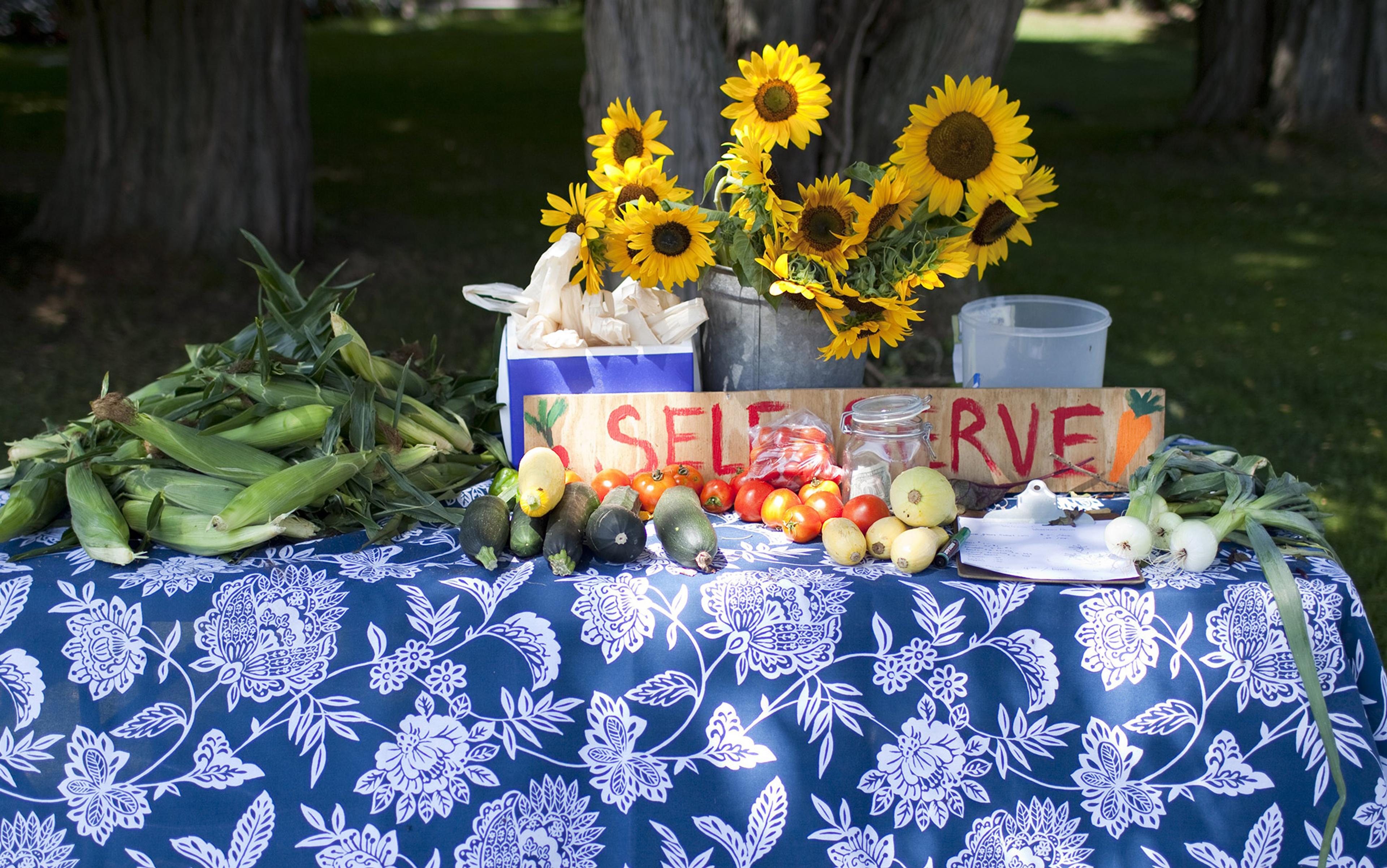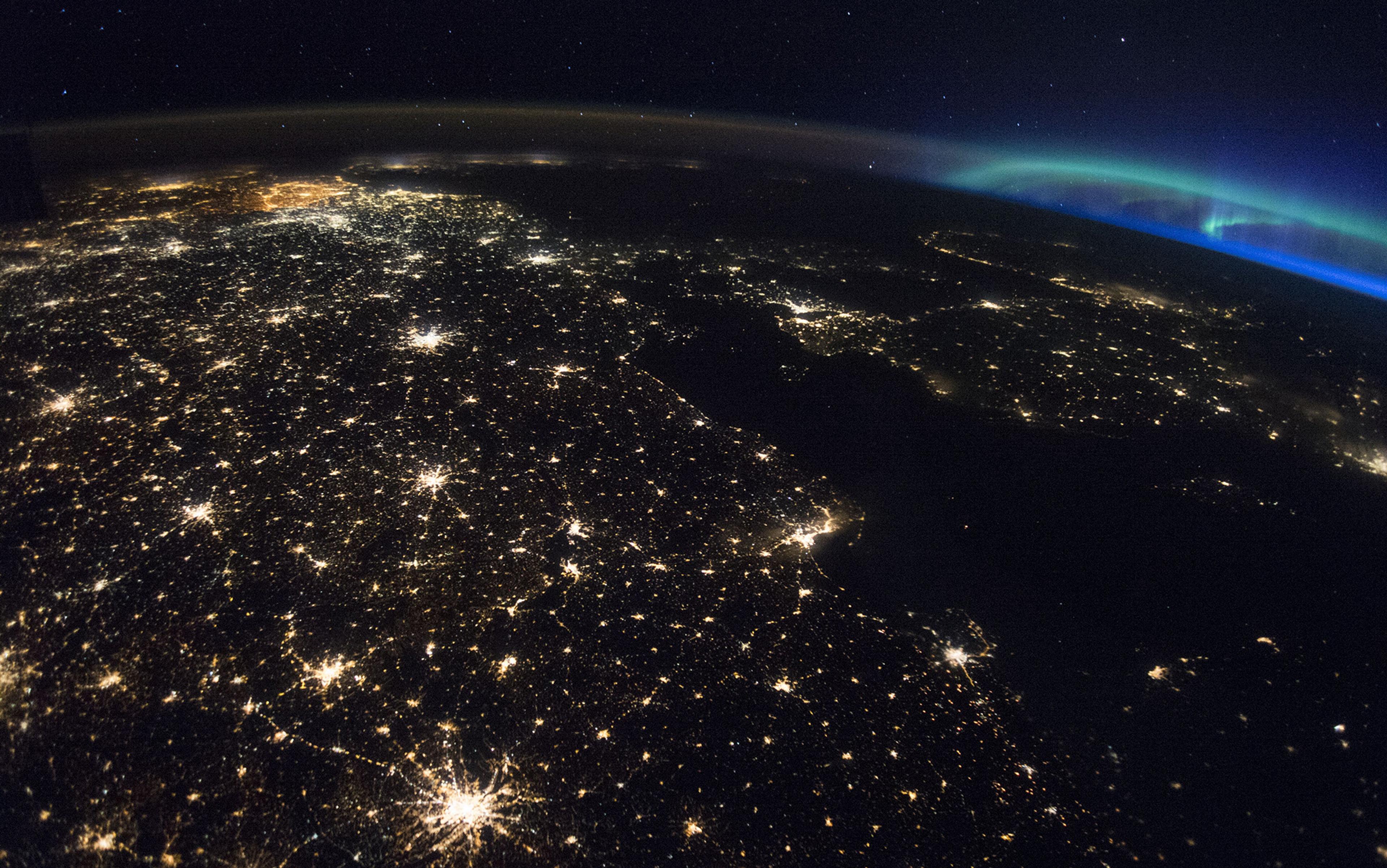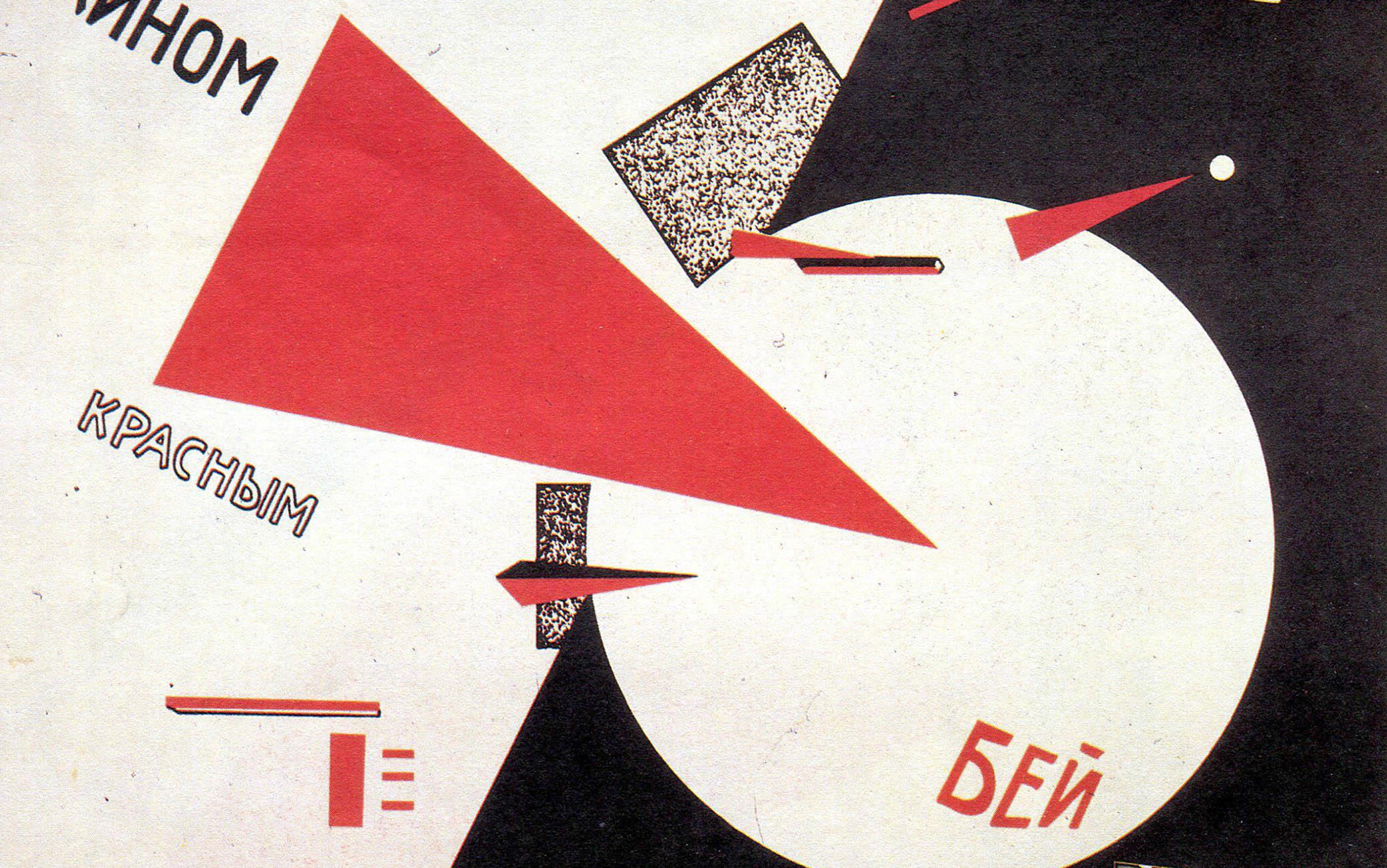To live in Vermont is to be smothered by nature’s beauty on a daily basis. Everywhere you look is another peaceful pond, another shimmering lake or emerald hill or misty field graced by a family of grazing deer. It’s almost obnoxious, like that one friend you have who’s so pretty, funny, smart and talented that you want to hate her stupid gorgeous face.
Immersed as we are in these exquisite pastoral gifts, Vermonters tend to forget that Mother Nature might be lovely, but moral she is not. She doesn’t love us or want what’s best for us. With one hand she giveth, and with the other she puncheth in the gut.
I know this only too well, because as well as the verdant wonderland that is Vermont, nature personally bestowed on me another of her special gifts: systemic lupus. Contrary to what the name suggests, lupus is not some totally rad werewolf disease. No, it’s actually kind of a drag, where your immune system constantly attacks your own body. Think of antibodies that dress up like teeny little Avon ladies to smooth-talk their way into your joints before upturning all the furniture and leaving an arthritic mess behind. Imagine white blood cells that create fake online dating profiles to lure innocent blood vessels, or lurk behind the heavy parlour drapes to leap out and ambush your kidneys. The result is a mess of pain, inflammation, fevers, fatigue and a never-ending litany of nasty surprises. My body is a haunted house and lupus is its poltergeist. Its all-natural poltergeist.
That’s why I just don’t buy the idea that ‘natural is best’. Your organic, gluten-free, sprouted ancient-grain bread is all-natural? That’s nice. My disease is all-natural too. My chronic pain, pleurisy and angry kidneys are all-natural, and my death would’ve been too, if I didn’t have access to the decidedly unnatural medications that allow me to lead a somewhat normal, comfortable life.
A few years ago, in a typical Vermont exchange, a chain smoker paused between drags to scold me for drinking a Diet Coke – or as she referred to it, ‘that poison’. I had the temerity to point out that she was smoking a cigarette. ‘They’re natural,’ she replied smugly, drawing my attention to the colourful bubble on the packaging that proclaimed her smokes were made with ‘100% Certified Organic Tobacco!’. Now, I’m aware that Diet Coke is not exactly a health tonic, but blithely calling it poison in a voice cracked with the tar of innumerable organic butts speaks to a certain cognitive bias. The soda was bad purely because it wasn’t natural, and the cigarettes were good purely because they were. I refrained from asking her if she enjoyed lots of other natural things, such as cobra bites, poison ivy, malaria, and diving headlong into 100 per cent organic molten lava.
It turns out that a certain counter-rationalist mindset isn’t just a condition afflicting Right-wing reactionaries. This fetish for all things au naturel reached a particularly feverish peak in these parts recently, when Vermonters banded together to implement a mandatory labelling law for GMOs (genetically-modified organisms) in 2014. It was like watching villagers festoon their homes with garlic and crucifixes to ward off vampires. The anti-GMO rhetoric had lulled for a time following passage of the bill, but began to intensify again last year in the months leading up to the labelling deadline. Despite overwhelming scientific evidence that GMOs are safe for human consumption, more than three-quarters of Vermonters supported the law, which stated that all food manufacturers had to slap a chunk of text on their packaging if their product contained any ingredients that were produced through genetic engineering.
Not the Ye Olde Geneticke Engineereing that humans have practised for millennia, mind you, such as the selective breeding, crossbreeding and hybridisation of plants and animals. Rather, like all opponents of ‘Frankenfoods’, the supporters of the bill clearly differentiated between these timeworn agricultural methods and the modern form of genetic engineering that involves scientists isolating and manipulating individual genes to promote desired traits. If companies refused to comply with demands to label their GMOs, their Chewy Pork-Os and Mini Cheese Conundrums would no longer be sold on our pure, artisanal shelves.
Don’t get me wrong – I’m not against continued research on GMOs. It’s vital to think about their impact on biodiversity and on the Earth’s delicate ecosystems. But these consequences are bad because they’re bad, not because GMOs themselves are unnatural. Being ‘anti-GMO’, period, is as good as being ‘anti-science’.
As a lifelong horror-movie fan, I can admit that there is something classically terrifying about the idea of giant corporations manipulating genes. We all know what happens when EvilCorp sets up a secret lab on a remote island (experiments with weaponised shark-human hybrid cyborgs, obviously). DNA shouldn’t be tampered with, we say to ourselves. It’s intimate, fundamental – ‘us’; our purest essence laid bare, a potent link to our families and ancestors.
It doesn’t take much for us to mentally spool back in time, through gauzy montages of kooky historical costume changes, until we arrive at some untarnished, primordial Eve, squatting happily in front of her cook-fire, preparing some kale-and-wholegrain crêpes. Her rhythms are the rhythms of nature. She is at one with the natural world, not above or apart from it, and we are all connected to her across time, space and evolutionary leaps through this bio-mystical thread of the double-helix.
But wait; is that a rustling in the shrubberies behind her? Oh no, Eve, look out! It’s not a big cat or Eegah the Ripper; it’s so much worse. A pasty, bespectacled man in a white lab coat! With Big Ag embroidered on his breast pocket, and a huge stainless-steel syringe, glinting menacingly in the sun! Unaware of the danger, Eve nibbles on some açaí berries and assorted paleo-diet superfoods brought to her by obliging animal friends. The man squints down at his Ayn Rand day-planner where there are only two items in his to-do list:
1. MURDER NATURE
2. $$$ PROFIT $$$
The man plunges his syringe into a nearby quinoa loaf that Eve prepared earlier, and waits while globules of glowing green liquid penetrate deep into the bread. The artificial code slices, strangles and scrambles the hearty DNA of the untainted baked good until all that’s left is a clammy, greyish Frankenloaf. It’s ready. He scampers back into the bushes and waits for Eve to notice what he left behind.
We blame every ailment on scary ‘new’ technologies, forgetting the mortality we left behind
Soon enough, Eve is examining the bread, turning it in her long, calloused fingers. Her inner goddess whispers that something is not right. But it is so like ‘real’ food! Curiosity overcomes her and she takes that first bite and, as she does so, her DNA unravels, then tangles and sproings up like when you run a scissor blade over a Christmas ribbon to make it super sproingy. Her animal friends run away; they no longer recognise her as one of them. She looks no different yet she is changed deep inside. Her cycles no longer sync with the Moon, Gaia will not return her calls, and she’s pretty sure she has a peanut allergy.
Okay, so some more minor version of this drama is playing out subconsciously in the minds of people who refuse to believe in GMO safety. But was nature as great as their idealised Earth Mother fantasies suggest? We tend to romanticise the past and blame every ailment on this crazy, modern lifestyle and scary ‘new’ technologies, forgetting the mortality and brutality we’ve left behind. If Eve was a real person living in the palaeolithic era, her life expectancy would have been only about 30 years, max. As she approached this ripe old age, she would likely have been prone to many of the same ailments that people today don’t typically start to suffer from until their 60s. She would have been fortunate to live that long, considering they obviously didn’t benefit from miraculous modern medical advances such as antibiotics, cancer treatments, obstetrics, surgery and Bioré pore strips. And yes, the abundance of nutritious food that we enjoy today is thanks, in part, to GM technologies. You know what makes my lupus feel better? When I can afford healthy food, all year round.
Week after week, as the labelling deadline approached, I’d marvel at the hundreds of scientifically unfounded anti-GMO lies that would be repeated in the comment sections of newspapers and other media outlets. As if Satan himself were coming to murder us right in the mouth with nightmarish, demon hybrid foods, and this law was the only thing that could keep him at bay.
Some of the claims came from the Vermont Right to Know GMOs website, which was the official hub of the bill’s news and activism activity. It contained a number of untrue or misleading claims including:
- ‘important and unanswered questions about the healthfulness and safety of GE foods’
- ‘Independent studies continue to show that genetic engineering of food crops can lead to the production of toxins, allergens and other substances that may pose health-related risks’
- ‘The US Food and Drug Administration … leave the determination of these foods’ safety to the biotech companies that produce them’
I’d be frightened too, if this were my primary source of information. The allegation that biotech firms alone are responsible for safety-testing would be especially alarming – they must test the GMOs on the same island where they make the deadly sharkmen! Thankfully, it’s not true (at least as regards the GMOs). Yes, there’s plenty of research bankrolled by the likes of the agricultural EvilCorp that is Monsanto or other GM technology firms such as Syngenta, Bayer or DuPont. But there are also multiple independent studies performed on patented GMOs all over the world. So it’s not some kind of science-y petri-dish, Wild West situation; GM seeds have been tested at every stage of development and release for 30 years.
It was actually people like me who ruined his natural cider with our dumb ill health
The GMO labelling bill H.112 came into force in Vermont on 1 July 2016. Three weeks later, on 29 July 2016, the then president Barack Obama signed into federal law bill S.764, which required food manufacturers to label foods containing GMOs, but gave them numerous options to do so other than via the block of text that Vermont required. Scannable bar codes, QR codes, and 1-800 numbers are among the options. This federal law obviously superseded Vermont’s law, rendering it a very expensive few weeks for Vermont’s food producers. The state spent nearly $2 million defending the law, and Vermont retailers shelled out almost $5 million in their scramble to comply with it. Many of those stores are small mom-and-pop operations already struggling to compete with large chain retailers.
My boyfriend and I used to buy a share of a farmer’s harvest at the beginning of the season, from a local organic farm. We didn’t care so much about the organic part, we were just happy to support local agriculture. One afternoon, they had some cider for sale in addition to our usual weekly pick-up. It looked inviting, so I asked if it was pasteurised. ‘Yeah,’ the farmer grumbled, ‘I guess the FDA forces everyone to pasteurise it because someone claimed their kid got sick or something.’
As it happens, my lupus medications severely suppress my immune system, so I’m as high-risk for food poisoning as that pesky sick kid. For me and others like me, food poisoning can be deadly, and there have been plenty of outbreaks of E.coli associated with unpasteurised cider. But the farmer blamed the big evil US Food and Drug Administration (FDA) for imposing this unnatural process on the natural cider. It made me sad and angry, but I didn’t bother to explain that it was actually people like me who ruined his cider with our dumb ill health, or that I was grateful to the FDA for looking out for me.
Nature can seem as inspiring, beautiful, strong and nurturing as a mother, but it would be foolish to believe that this ‘mother’ loves us. There’s no reason we can’t celebrate her glorious natural gifts while also appreciating the important ‘unnatural’ improvements our fellow humans have created. I wouldn’t – and couldn’t – have it any other way. Would you?






